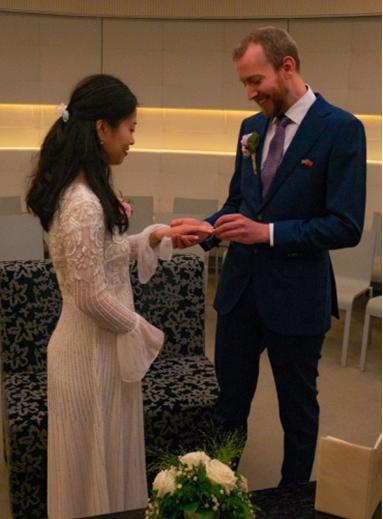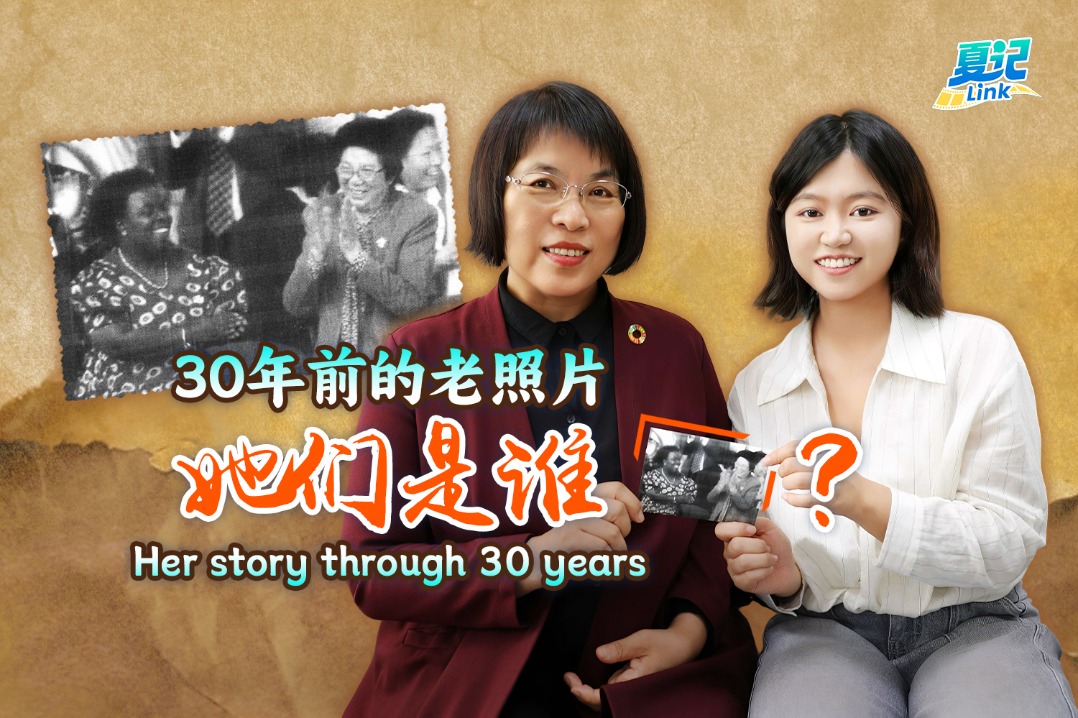Tap the mind to grasp the enormity of change in China
By Jaap Grolleman | chinadaily.com.cn | Updated: 2018-08-08 15:25
The mind is a mysterious place. We can never fully understand what goes on in the mind of someone else. We can never see and feel what others think or feel. Nor can we ever share our own thoughts and feelings without first translating them into words or actions, by which they've lost most of their power. The most we can do is to assume that others minds have the same complex-inner works of our own.
Sometimes my mind speaks in words, but more often it speaks in thoughts, or pictures. Emotions, sounds, associations. Feelings felt at places, and memories made with people. I think minds are more animalistic than human. I doubt animal minds use words. Monkeys scream and use their hands to make gestures. Birds and whales sing. Fireflies glow, and skunks release smell.
Minds work at a deeper current than language does. When someone asks me whether I love my wife, it's easy to answer —"Yes of course!" — but when someone asks me why I love her, I feel it's an unfair question. I don't have the tools to fully explain it. I stumble and answer with something that sounds unconvincing, like "She makes me feel nice", and "She makes me a better person", which is all true — but my feelings for her are more intricate than that.
I'll live the rest of my life with her, but I'll never be able to fully grasp her mind. The limitation of language is even bigger for us, because she come from vastly different place. I was born in a small town in the east of the Netherlands, while she was raised in a family in Nantong. But 1978 China's reform policy didn't just open up the country, it also introduced her mind to foreign entertainment. In the late 90s, she bought her first 'Western' CD, 'Butterfly' by Mariah Carey — and watched the TV series 'Growing Pain', and movies such as 'The Matrix'. She learned English and grew a desire to explore the world, and decided to study in Europe.

The 1978 policy also did the opposite. It brought Chinese ideas to my foreign mind. I read many books on historic and modern China — and they gripped me. And so when our minds accidentally met in the Netherlands, they were drawn to each other. We now live in Shanghai, three months into our marriage.
I'm so much talking about minds — my own, my wife's, and minds in general — because it has helped me to fully understand the enormity of China.
I don't want to tell you what's so good about China. Or how much it has changed in the last 40 years.
I would like you to experience it for yourself. And I think the best way to understand others is through empathy, whether you want to understand an individual, or the most populous country on the planet.
Sure, there are many statistics about China's reform policy — all insanely unbelievable. Hundreds of millions of people lifted from poverty, life expectancy and literacy rose. Incomes increased five-fold, and China grew from having 1.8% of the world's economy in 1978 to 18.2% in 2017. There are other stats people are all too familiar with.
But if you have a mind like me, you'll find it hard to find real meaning in those words and numbers. There's an emotional limit to linguistics.
So how then, do you put value to all of that?
For me, it's about thinking about the 1,379,000,000 individual Chinese minds the reform policy has changed, as well as the 6,063,000,000 minds outside of China. The reform policy touched lives, facilitated the production and spread of products, tools, services, ideas, people. It has improved so many lives and minds, from Beijing to Urumqi and the thousands of other cities and villages.
When I walk on the streets of Shanghai I can't help but wonder what the old lady from the hole-in-the-wall thinks. How her mind works. Or the young couple taking selfies at the Bund. Or the security guard of the museum. And all these millions of minds are as complicated as mine, all consisting of a tangle of feelings, emotions, memories and other pieces of information. Doubts and fears. Joys and hopes.
When you think about that, you get something close to the meaning of 'mind blowing'. But it is precisely this understanding that helps to value the 1978 reform policy for what it was and is, for it is impossible to describe accurately with pictures or words or statistics. Our minds can’t cope with mere statistics, lists, reports like that. Oh, you'll find plenty of those. But when you do find them, and read about its progress, please think about the minds. This must be felt to be fully understood.
Jaap Grolleman is a marketing professional from the Netherlands and now working as an strategist at the Swedish-Chinese company Seventy Agency in Shanghai.
The opinions expressed here are those of the writer and do not represent the views of China Daily and China Daily website.
























